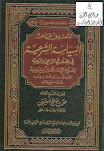Ibnu Taimiyyah and his book al-Siyasah al-Syar'iyah fi Islah al-Ra'i wa al-Ra'iyyah
Ibnu Taimiyyah's idea in his book al-Siyasah al-Syar’iyyah fi
Islah al-Ra'i wa Ra'iyyah has a connection with public office, namely in
emphasizing a figure who has the qualifications in their field. This
qualification should fulfill several aspects at once. He recommends that the
position should be given to those who are the most pious (aslah) in the
sense of being the most worthy and competent. Another aspect is strength (al-Quwwah)
which includes physical and spiritual health and skill in the respective field.
In addition, the trustworthiness or credibility of a person is also a very
important thing that must exist in a leader. The accumulation of these aspects
will form a complete official figure and establish policies that bring benefits
to many people. These criteria colour Ibnu Tamiyah's political thought.
Therefore, these criteria cannot be separated in the practice of State
administration.
Determining the requirements of aslah, and amanah of
a candidate for state leader is a very large implementation in achieving common
benefits. The quwwah requirement plays an important role in ibnu
Taimiyah's political conception because a state leader is the guide and
protector of society. His duties and responsibilities are very heavy in
accordance with the highest authority obtained in society. The meaning of al-Quwwah
(power) as the first aspect to determine the eligibility of a person to be
appointed in public office. Al-Quwwah does not necessarily refer to the
human physique, but rather bihasbi al-wilayah (according to the
respective field of competence). If the position is related to war, then the
form of strength refers to physical strength and skill in the science of
warfare. Someone who is only physically strong but lacks intelligence in
warfare strategy is not considered to have the element of al-quwwah.
The ideal eligibility requirements were considered as a difficult
thing by Ibnu Taimiyyah at that time, so a question arose: what if there was an
event where there is no candidate that fulfilled the two aspects of eligibility
at once for a vacant position. That means there is someone whose strength
aspect (competence) is more dominant while his trustworthiness aspect
(credibility) is weak? According to Ibnu Taimiyyah, the solution to such
situations and conditions is to consider the aspect of benefit. Which means, a
leader must be seen from both aspects of eligibility, which one is more needed
in a position. Thus, someone can then be considered beneficial to be positioned
in that position. For example in the field of security and defense affairs.
When there are two or more people whose one aspect of eligibility (al-quwwah
and al-amanah) is more dominant than the other, then those who are chosen
are those whose strength aspect is superior to their trustworthiness aspect.
This is not only based on Ibnu Taymiyyah's reflection on the hadith
related to this matter, but also on the history of the Prophet who appointed
Khaleed ibn Waleed as a warlord, even though at that time there were many other
companions who were more qualified and senior in the field of religion. If we
associate this view with the socio-political and historical background of Ibn
Taymiyyah's life, it is a reflection of his disappointment over the reign of
Bani Abbas. Where the authority power of the Abbas family’s caliphs experienced
a decline until their last one. Among them, it is not uncommon for competition
and power struggles to happen between their officials. Thus the officials could
not carry out their mandate and the Mongol army easily destroyed them. He
emphasized the people's obedience to the state leader. He saw that the figure
of the state leader held an important position. As the leader of the Muslims,
the state leader must be obeyed. Therefore, he did not allow the people to
rebel against the state leader.



Post a Comment for "Ibnu Taimiyyah and his book al-Siyasah al-Syar'iyah fi Islah al-Ra'i wa al-Ra'iyyah"